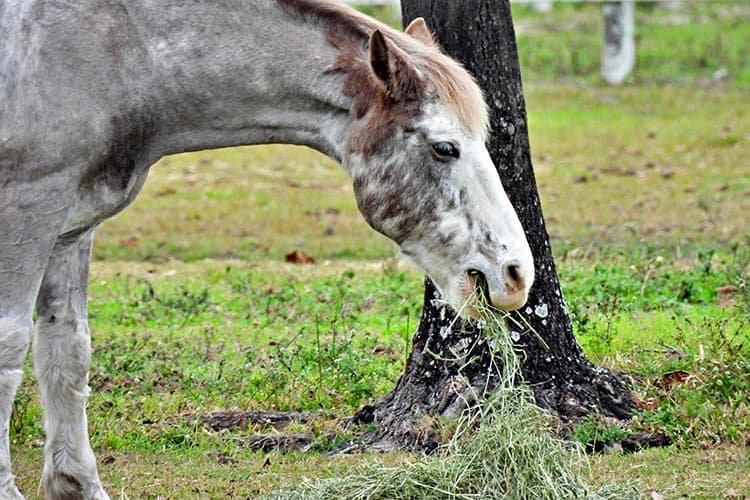Alfalfa is a popular forage choice among horse owners, but it comes with questions and concerns.
Understanding how alfalfa can benefit your horse and how to use it correctly is essential for their health. Here’s a comprehensive FAQ to help you navigate the topic.
1. What is Alfalfa?
Alfalfa is a legume hay known for its high protein content and excellent nutritional value. It is rich in vitamins and minerals, making it a popular choice for many horse owners. The leaves are tender, and the stems are soft, which many horses find palatable.
2. Is Alfalfa Suitable for All Horses?
While alfalfa can be beneficial for many horses, it is not suitable for every horse. Horses that are in heavy work, growing, or pregnant may benefit from alfalfa due to its high protein and calcium levels. However, horses that are overweight or have certain metabolic conditions should have limited access to alfalfa, as it can lead to weight gain.
3. How Should I Introduce Alfalfa to My Horse’s Diet?
When introducing alfalfa, do so gradually. Start by mixing a small amount with your horse’s regular hay or feed, increasing the amount over a week or two. This gradual introduction helps prevent digestive upset.
4. Can Alfalfa Replace Grass Hay?
Alfalfa can supplement or replace grass hay, but it shouldn’t be the sole source of forage. A balanced diet often includes a mix of both grass hay and alfalfa, providing a variety of nutrients. Horses typically thrive on diverse forages.
5. What Are the Nutritional Benefits of Alfalfa?
Alfalfa is rich in protein, calcium, and other essential nutrients. It contains approximately 15-20% protein, which is beneficial for muscle development and overall health. Its high calcium content supports bone health, making it particularly good for growing or lactating horses.

6. Are There Any Risks Associated with Feeding Alfalfa?
Yes, there are some risks. The high protein and calcium levels can be excessive for certain horses, especially those with metabolic issues. Additionally, overfeeding alfalfa can lead to obesity and related health problems. Always monitor your horse’s body condition and consult a vet if unsure.
7. How Much Alfalfa Should I Feed My Horse?
The amount of alfalfa to feed depends on your horse’s age, weight, activity level, and overall health. A general guideline is to offer about 1-2% of your horse’s body weight in hay per day. If you’re using alfalfa as a supplement, adjust the total hay intake accordingly.
8. How Do I Store Alfalfa Properly?
Proper storage is key to maintaining the quality of alfalfa. Keep it in a cool, dry place away from direct sunlight. Use a well-ventilated barn or shed, and make sure it’s protected from moisture to prevent mold growth. If stored correctly, alfalfa can last a long time without losing its nutritional value.
9. Can Alfalfa Cause Colic?
Feeding alfalfa in moderation typically doesn’t cause colic, but any sudden changes in diet can lead to digestive issues. Always introduce new feeds gradually and ensure your horse has access to fresh water. Maintaining a consistent feeding schedule also helps prevent colic.
10. What Are the Signs That My Horse is Not Tolerating Alfalfa?
If your horse is having difficulty with alfalfa, watch for signs such as changes in appetite, unusual behavior, diarrhea, or colic symptoms. If you notice any of these signs, consult your veterinarian immediately.




